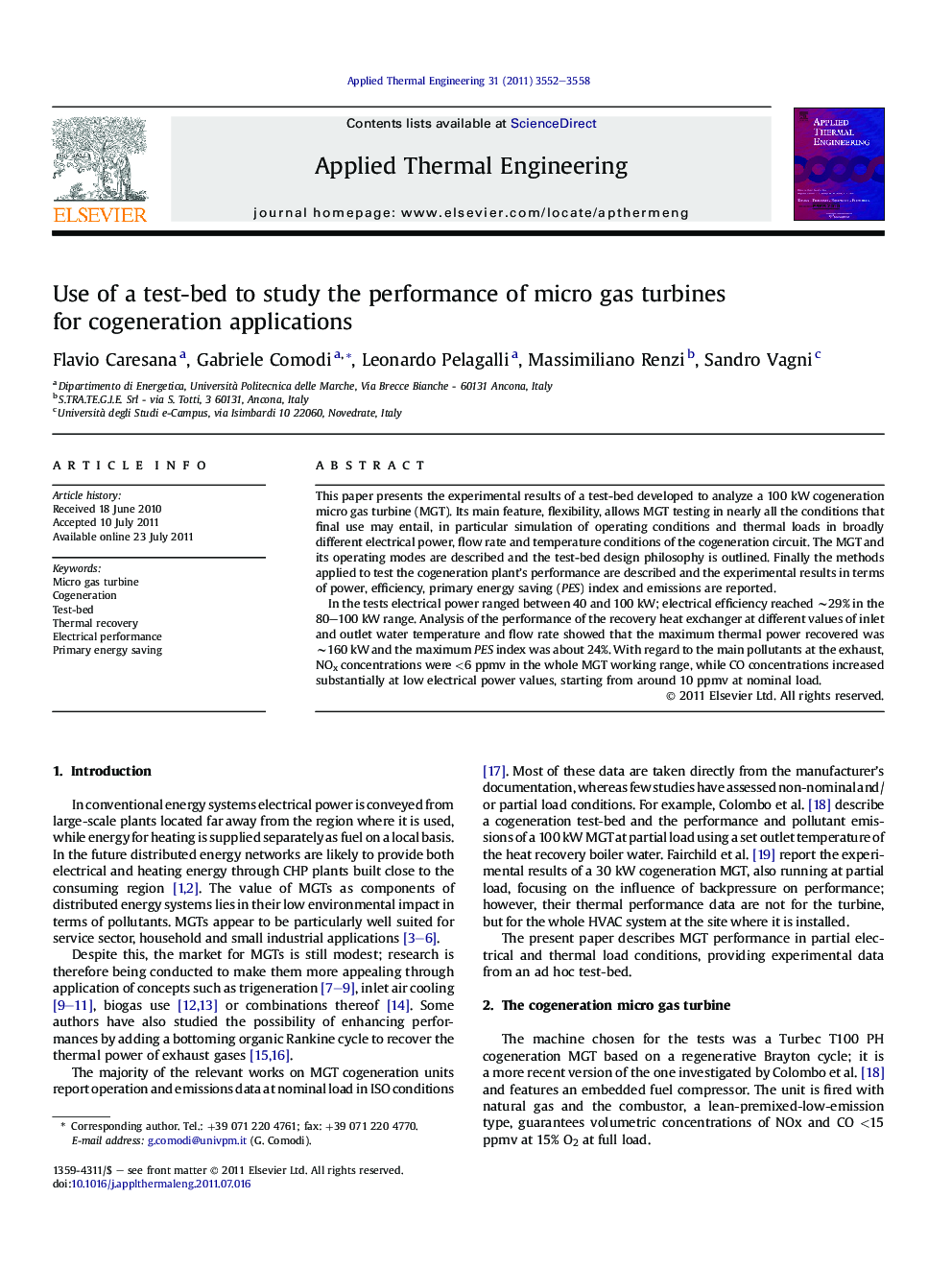| Article ID | Journal | Published Year | Pages | File Type |
|---|---|---|---|---|
| 647694 | Applied Thermal Engineering | 2011 | 7 Pages |
This paper presents the experimental results of a test-bed developed to analyze a 100 kW cogeneration micro gas turbine (MGT). Its main feature, flexibility, allows MGT testing in nearly all the conditions that final use may entail, in particular simulation of operating conditions and thermal loads in broadly different electrical power, flow rate and temperature conditions of the cogeneration circuit. The MGT and its operating modes are described and the test-bed design philosophy is outlined. Finally the methods applied to test the cogeneration plant’s performance are described and the experimental results in terms of power, efficiency, primary energy saving (PES) index and emissions are reported.In the tests electrical power ranged between 40 and 100 kW; electrical efficiency reached ∼29% in the 80–100 kW range. Analysis of the performance of the recovery heat exchanger at different values of inlet and outlet water temperature and flow rate showed that the maximum thermal power recovered was ∼160 kW and the maximum PES index was about 24%. With regard to the main pollutants at the exhaust, NOx concentrations were <6 ppmv in the whole MGT working range, while CO concentrations increased substantially at low electrical power values, starting from around 10 ppmv at nominal load.
► The test-bed allowed analyzing the MGT in nearly all cogenerative conditions. ► Electrical efficiency reached ∼29% in the 80–100 kW range. ► The maximum thermal power recovered was ∼160 kW (thermal efficiency ∼44%). ► Heat priority guaranteed the highest total efficiency (∼74%) and PES (∼0.23). ► NOx were <6 ppmv, CO were ∼10 ppmv at nominal load and increased at low power.
